October 2025
The freight transport management market is projected to reach USD 86.52 billion by 2034, expanding from USD 33.93 billion in 2025, at an annual growth rate of 10.96% during the forecast period from 2025 to 2034. The rising development in the logistics sector coupled with integration of AI in freight management platforms has driven the market expansion.
Additionally, the growing adoption of 3PL logistics by pharmaceutical companies along with technological advancements in modern warehouses is shaping the industry in a positive direction. The growing adoption of cloud-based fleet management solutions in large organizations as well as rapid urbanization in the developed nations is expected to create ample growth opportunities for the market players in the upcoming days.
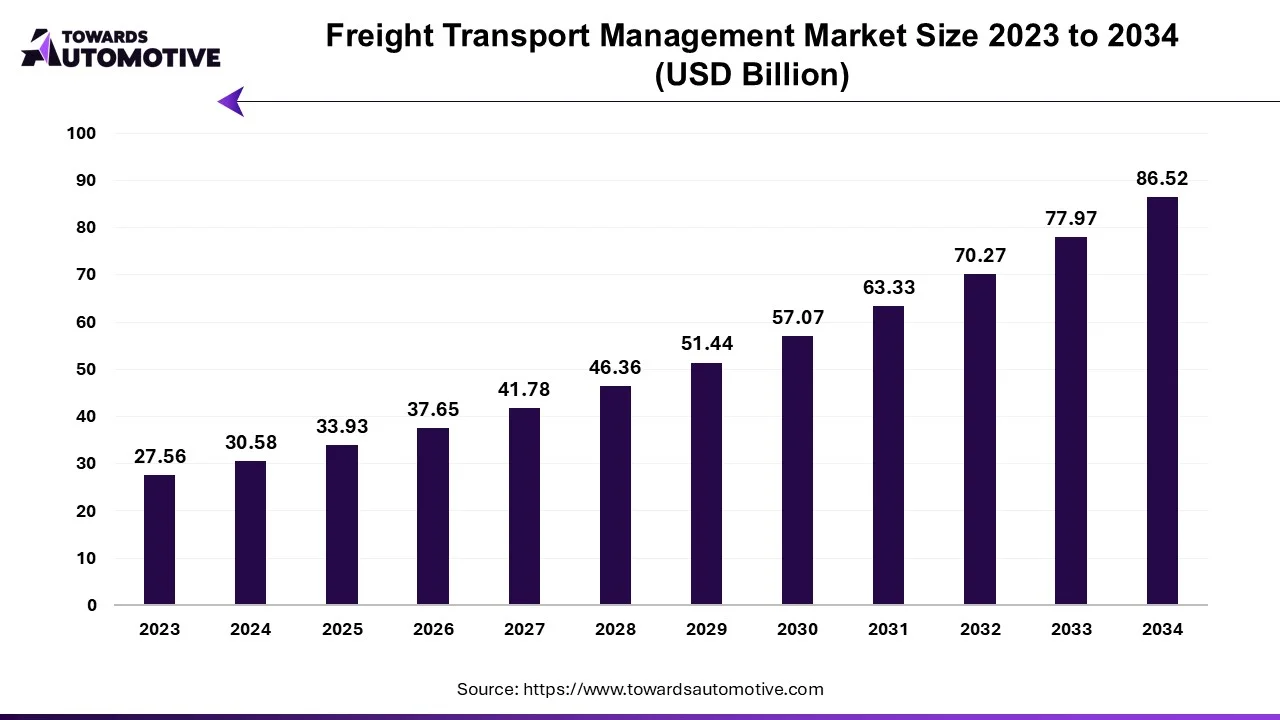
The freight transportation management market is a prominent segment of the logistics industry. This industry deals in developing advanced solutions for managing freight transportation in different parts of the world. There are various solutions developed in this sector including freight transportation cost management solution, freight security and monitoring system, freight mobility solution, freight 3PL solution, and some others. The end-user of these solutions consists of manufacturing, retail, healthcare, oil and gas, food and beverage and some others. This market is expected to grow significantly with the rise of the e-commerce sector across the globe.
| Metric | Details |
| Market Size in 2024 | USD 30.58 Billion |
| Projected Market Size in 2034 | USD 86.52 Billion |
| CAGR (2025 - 2034) | 10.96% |
| Leading Region | North America |
| Market Segmentation | By Offering, By Deployment Model, By Application, By End-User and By Region |
| Top Key Players | CEVA Logistics, Korber AG, Infor, SAP SE, DB Schenker, IBM Corporation |
The major trends in this market consists of smart warehouses, government initiatives and fleet management solutions.
The logistics companies have started investing heavily for constructing warehouses that are integrated with advanced technologies such as AI and IoT.
The government of several countries such as India, China, the U.S., Canada, Germany and some others have launched numerous initiatives for strengthening the logistics sector.
The fleet owners have started deploying advanced fleet management solutions for tracking movement of vehicles engaged in delivering goods.
The solution segment dominated the market. The growing adoption of advanced freight management solutions in large organizations has boosted the market expansion. Additionally, the rising demand for freight 3PL solutions and freight mobility solutions from the retail sector is expected to drive the growth of the freight transport management market.
The services segment is expected to grow with a considerable CAGR during the forecast period. The rising emphasis on planning and optimizing the movement of goods in the logistics sector has driven the market growth. Moreover, numerous partnerships among market players to deliver superior management services is expected to foster the growth of the freight transport management market.
The ocean freight segment dominated the industry. The rising adoption of marine transportation for operating cross-border logistics operations has boosted the market expansion. Additionally, partnerships among e-commerce brands and freight managing companies for enhancing ocean freight services is expected to propel the growth of the freight transport management market.
The air freight segment is expected to rise with a significant CAGR during the forecast period. The growing adoption of air freight services by pharmaceutical companies for transporting vaccines and essential medicines at fast speed has driven the market growth. Also, deployment of advanced TMS solutions to cater the needs of the food and beverage industry has driven the growth of the freight transport management market.
North America led the freight transport management market. The rapid development in the food and beverage industry in several countries such as the U.S. and Canada has boosted the market expansion. Additionally, numerous government initiatives aimed at developing the logistics sector as well as rise in number of warehouses is contributing to the overall industrial growth. Moreover, the presence of several market players such as Oracle Corporation, IBM Corporation, Infor and some others is expected to boost the growth of the freight transport management market in this region.
Asia Pacific is expected to grow with a significant CAGR during the forecast period. The rapid growth of the e-commerce sector in various countries such as India, China, Japan, South Korea and some others has driven the market growth. Also, the growing adoption of air freight services for delivering medicinal items in different regions along with deployment of advanced warehouse management tools in smart warehouses has contributed to the industrial expansion. Moreover,, the presence of various freight transport management companies such as Kerry Logistics, NYK, SG Holdings Co., Ltd, First TIR Logistics and some others is expected to drive the growth of the freight transport management market in this region.
The global freight transport market size is calculated at USD 39.62 billion in 2024 and is expected to be worth USD 116.11 billion by 2034, expanding at a CAGR of 11.35% from 2024 to 2034.
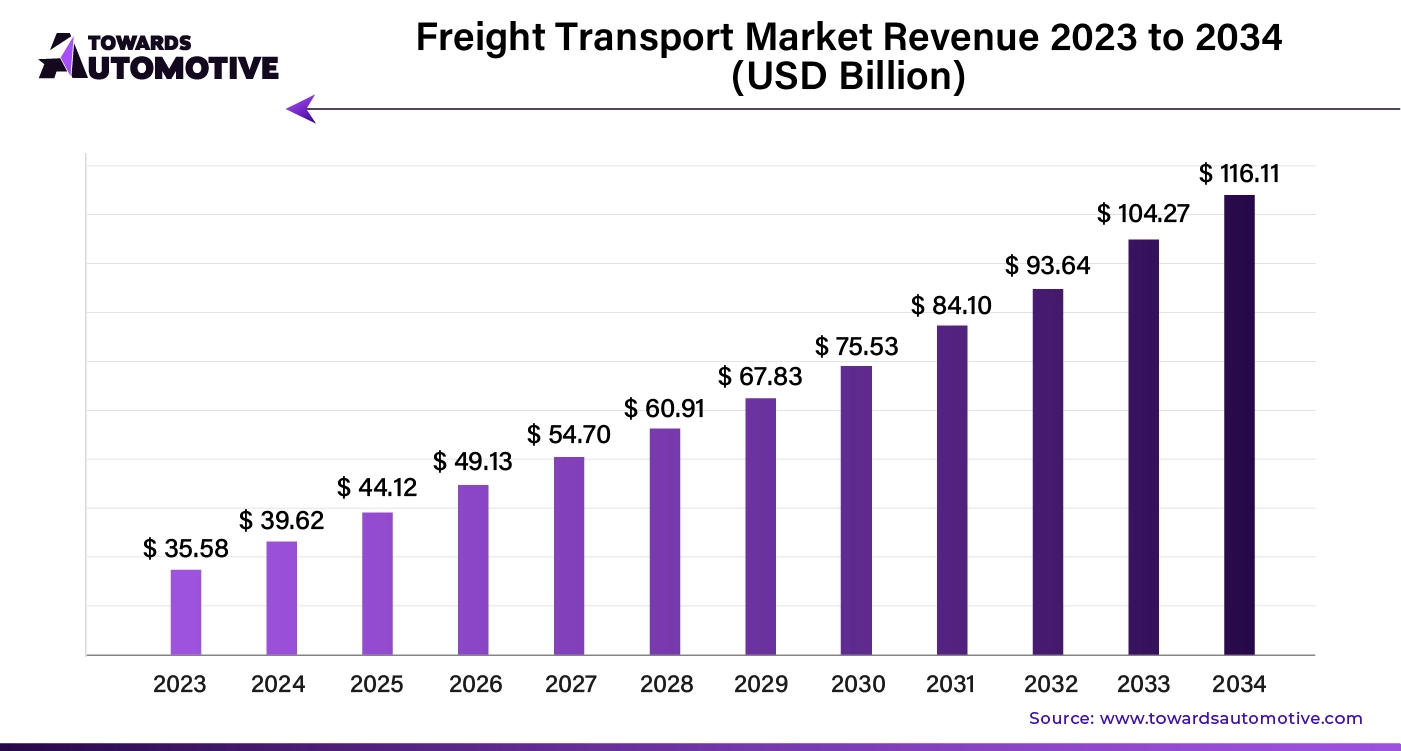
The freight transport market is essential to global commerce, enabling the movement of goods through various modes such as road, rail, air, and sea. As businesses and industries increasingly rely on efficient logistics, the demand for robust freight transport services continues to grow. Key drivers include the surge in e-commerce, globalization, and the need for efficient supply chain management across diverse sectors. Technological advancements, such as automation and digital tracking, are reshaping the market by enhancing operational efficiency and reducing costs. Additionally, the push for sustainable transportation practices, including electric and hybrid vehicles, is influencing how freight transport adapts to environmental concerns. As global trade intensifies, the freight transport market is poised for significant growth, with increasing investment in infrastructure and innovative solutions to meet evolving customer needs.
The freight trucking market is expected to increase from USD 307.29 billion in 2025 to USD 466.99 billion by 2034, growing at a CAGR of 4.76% throughout the forecast period from 2025 to 2034.
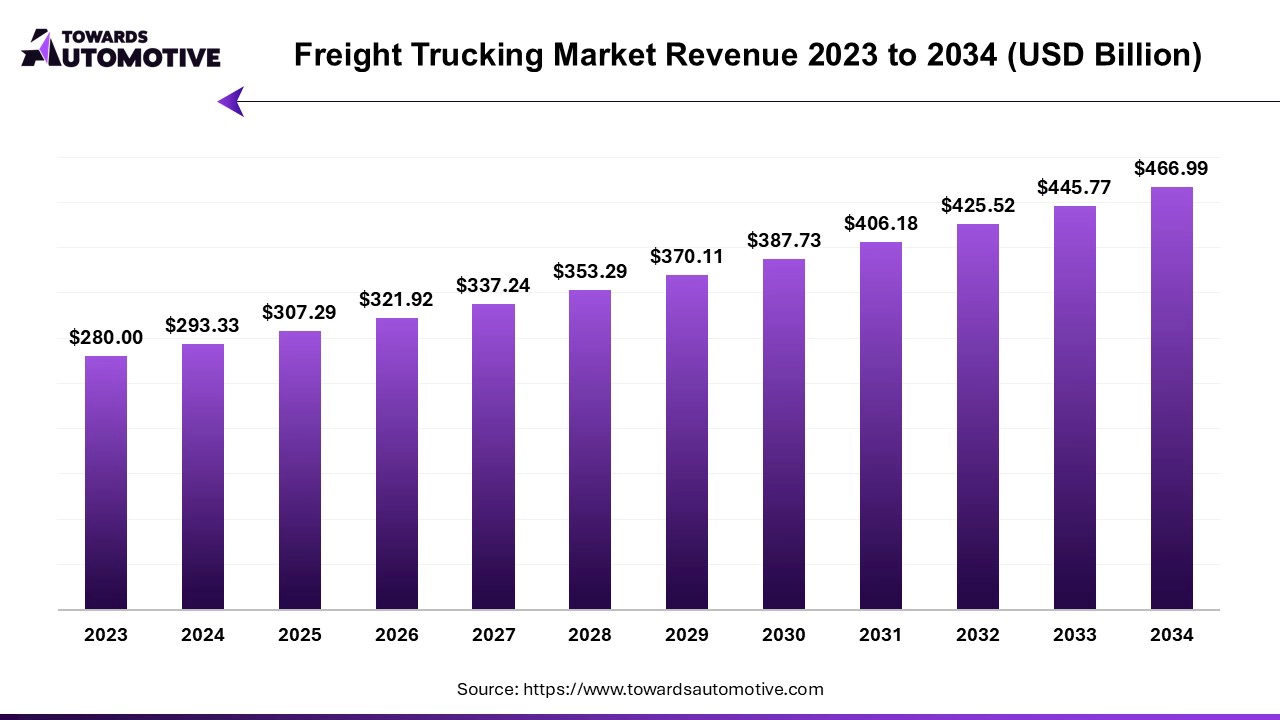
The freight trucking market is a prominent branch of the automotive industry. This industry deals in transporting goods using heavy-duty trucks. There are numerous types of trucks used in this sector including refrigerated trucks, tankers, dry van, flatbed and some others. The end-user of these trucks consists of various industries comprising of automobiles, machinery, apparels & footwears, pharmaceutical products, retail, electronics, petrochemicals, agriculture, building materials and some others. This market is expected to grow significantly with the rise of the logistics sector around the globe.
The air freight forwarding system market is projected to reach USD 13.27 billion by 2034, expanding from USD 9.22 billion in 2025, at an annual growth rate of 4.13% during the forecast period from 2025 to 2034.
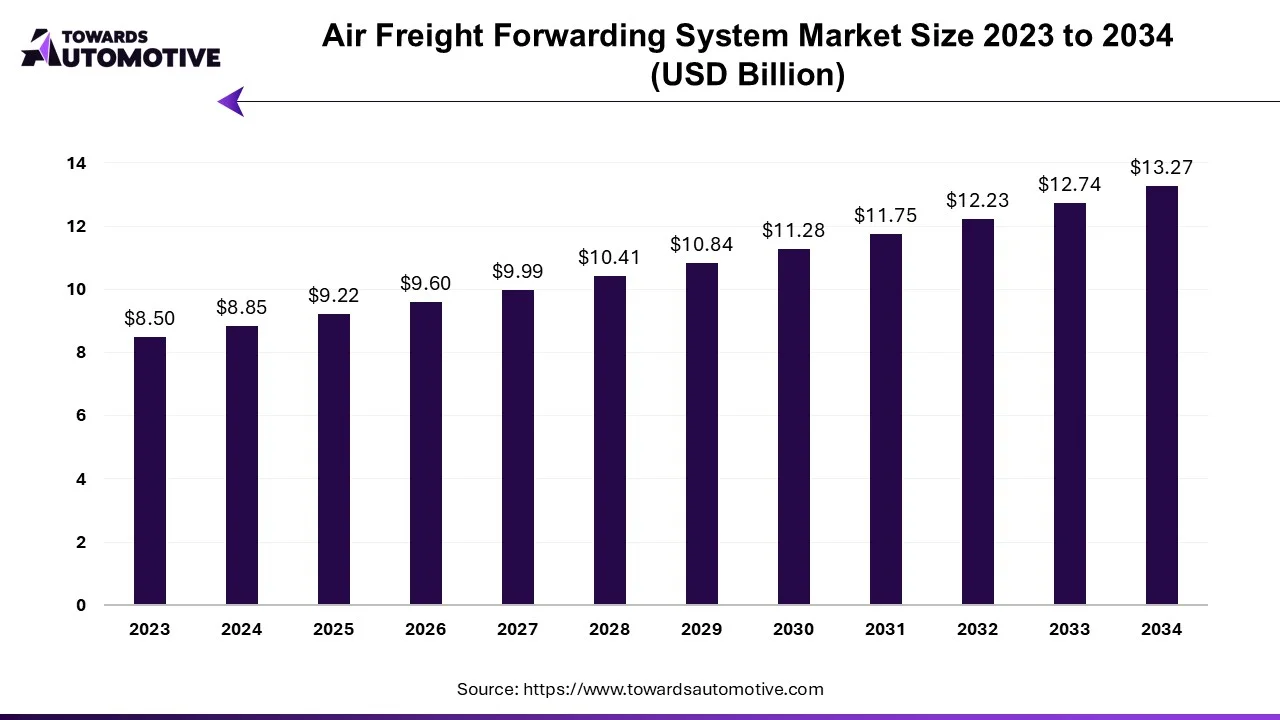
The rapid expansion of the e-commerce sector coupled with technological advancements in the logistics industry has boosted the market expansion. Additionally, the growing investment by airline companies to enhance international goods transportation along with integration of cloud-based transportation management system (TMS) for enhancing air cargo services is adding to the overall industrial expansion. The rising geopolitical issues and integration of AI in transportation management platforms is expected to create ample growth opportunities for the market players in the upcoming days.
The digital freight matching market is expected to grow from USD 33.63 billion in 2025 to USD 137.31 billion by 2034, with a CAGR of 16.92% throughout the forecast period from 2025 to 2034.
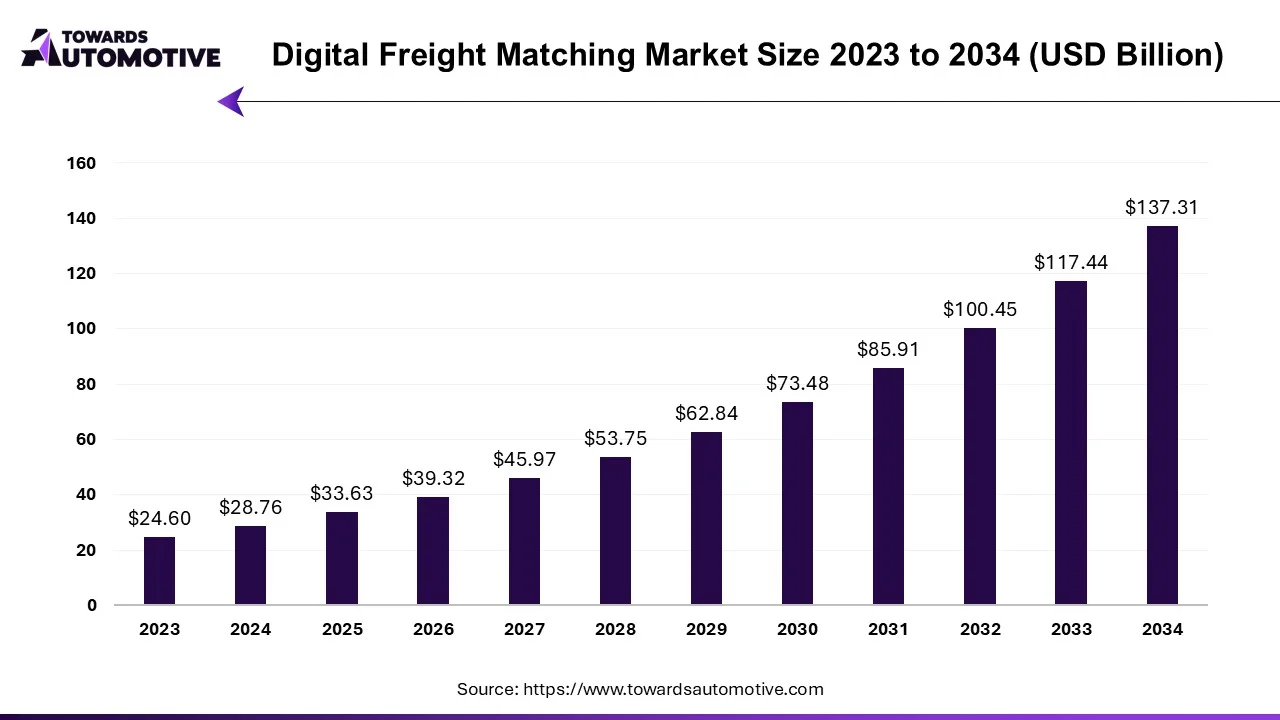
With a compound annual growth rate (CAGR) surpassing 16%, this market segment is at the forefront of transforming traditional freight brokerage and logistics operations. The fragmentation within the logistics industry presents a significant challenge for the digital freight matching sector. Coordinating processes becomes challenging as stakeholders employ varying methods and systems. Integrating these disparate systems poses challenges, impeding seamless communication between shippers and carriers. To address these hurdles, it's imperative to establish standardized procedures and business models to facilitate information exchange and enhance the efficacy of digital freight across different logistics domains.
The freight forwarding market is forecast to grow from USD 232.37 billion in 2025 to USD 358.32 billion by 2034, driven by a CAGR of 4.93% from 2025 to 2034. The rapid growth in the e-commerce sector along with numerous government initiatives aimed at developing the road infrastructure is playing a vital role in shaping the industrial landscape.
Moreover, collaborations among logistics companies and manufacturing brands coupled with growing investment by market players for opening new storage facilities has driven the market expansion. The increasing use of drones and autonomous vehicles for operating last-mile delivery services is expected to create ample growth opportunities for the market players in the future.
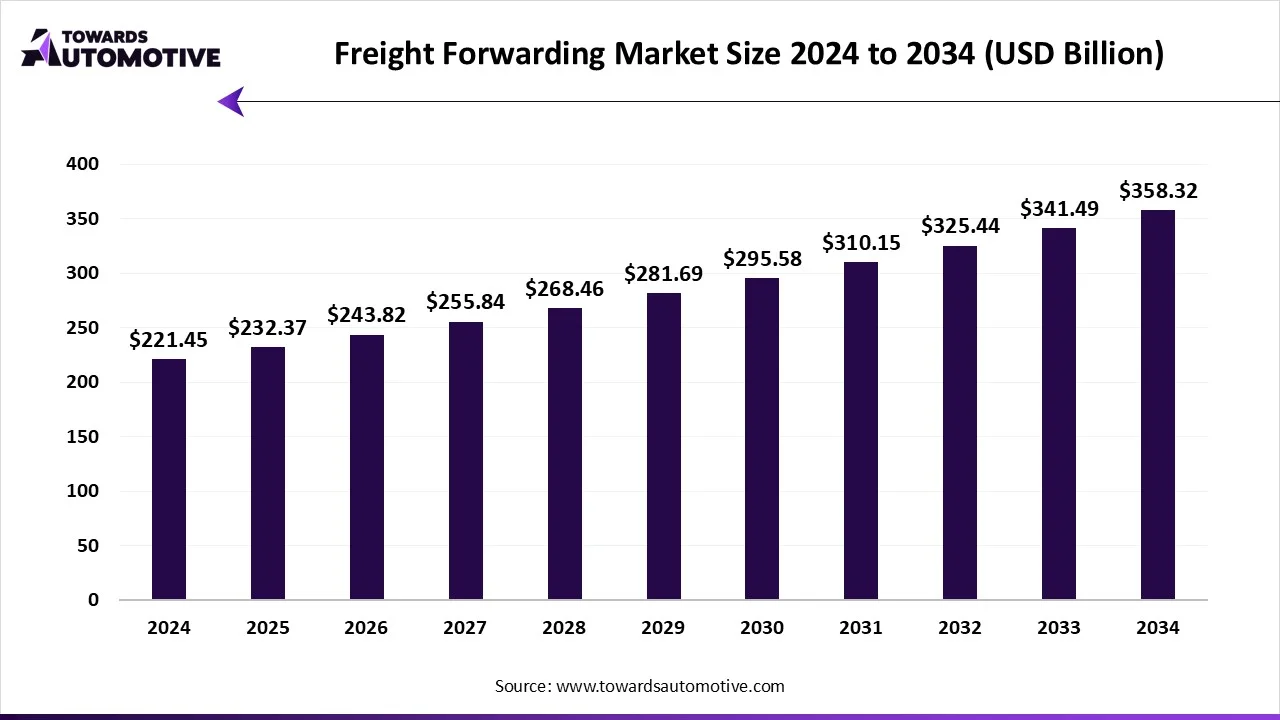
The freight forwarding market is a prominent branch of the logistics industry. This industry deals in providing freight forwarding services in different parts of the world. There are several types of services delivered by this sector comprising of full container load shipping, less than container load shipping, breakbulk cargo handling, e-commerce fulfillment, project cargo & heavy lift, customs brokerage, warehousing & distribution, value-added services and some others. These services are operated by numerous modes of transport consisting of air freight forwarding, sea freight forwarding, road freight forwarding, rail freight forwarding, multimodal transport and some others. The end-users of these services consist of manufacturing & industrial goods, retail & consumer goods, automotive, healthcare & pharmaceuticals, food & beverage, chemicals, agriculture, e-commerce and some others. This market is expected to rise significantly with the growth of the online shopping industry around the globe.
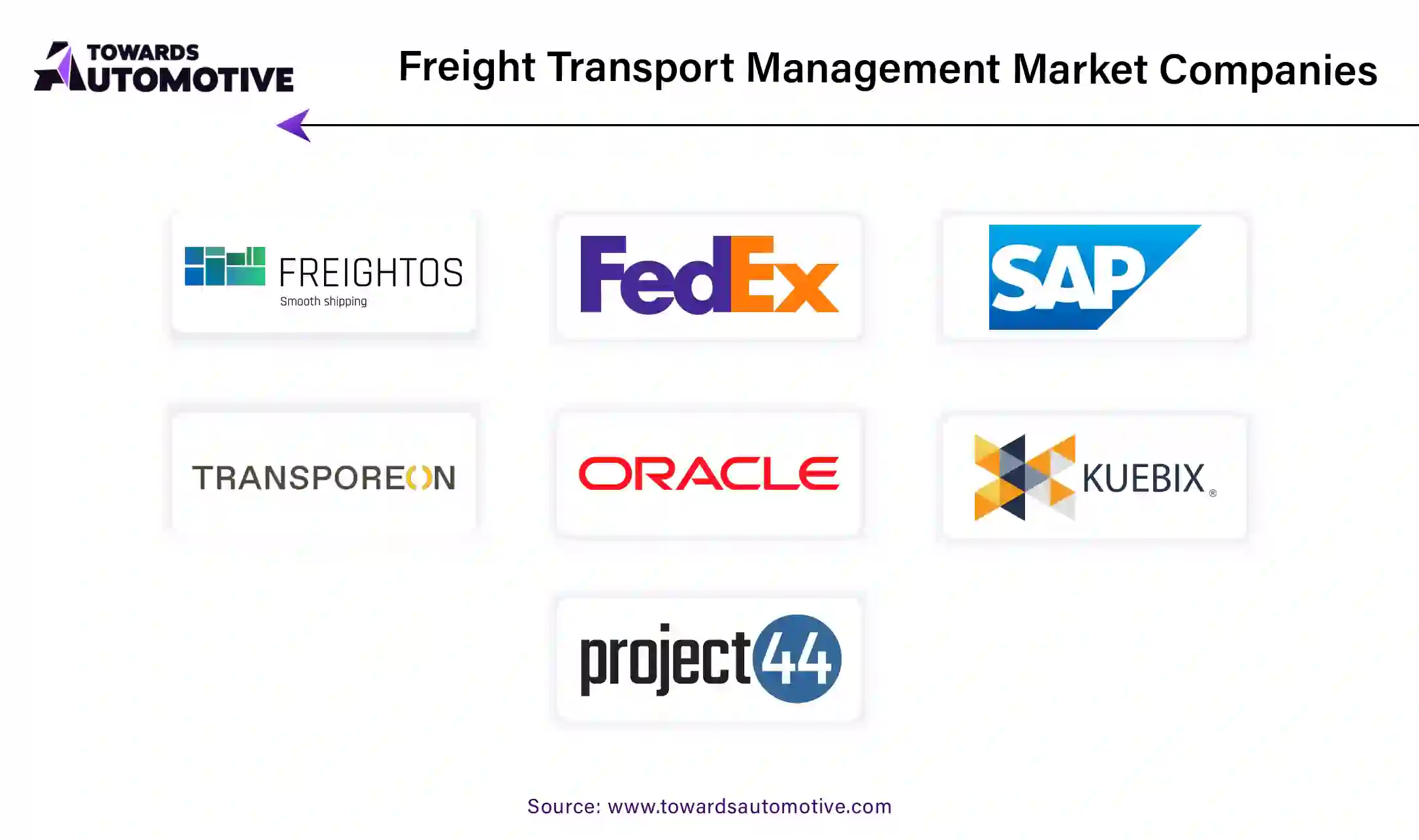
The freight transport market is a rapidly developing industry with the presence of several dominating players. Some of the prominent companies in this industry consists of CEVA Logistics, Korber AG, Infor, SAP SE, DB Schenker, IBM Corporation, Freightos, FedEx Logistics, Coyote Logistics, Manhattan Associates, XPO Logistics and some others. These companies are constantly engaged in developing coach buses and adopting numerous strategies such as acquisitions, joint ventures, collaborations, launches, partnerships, and some others to maintain their dominance in this industry.
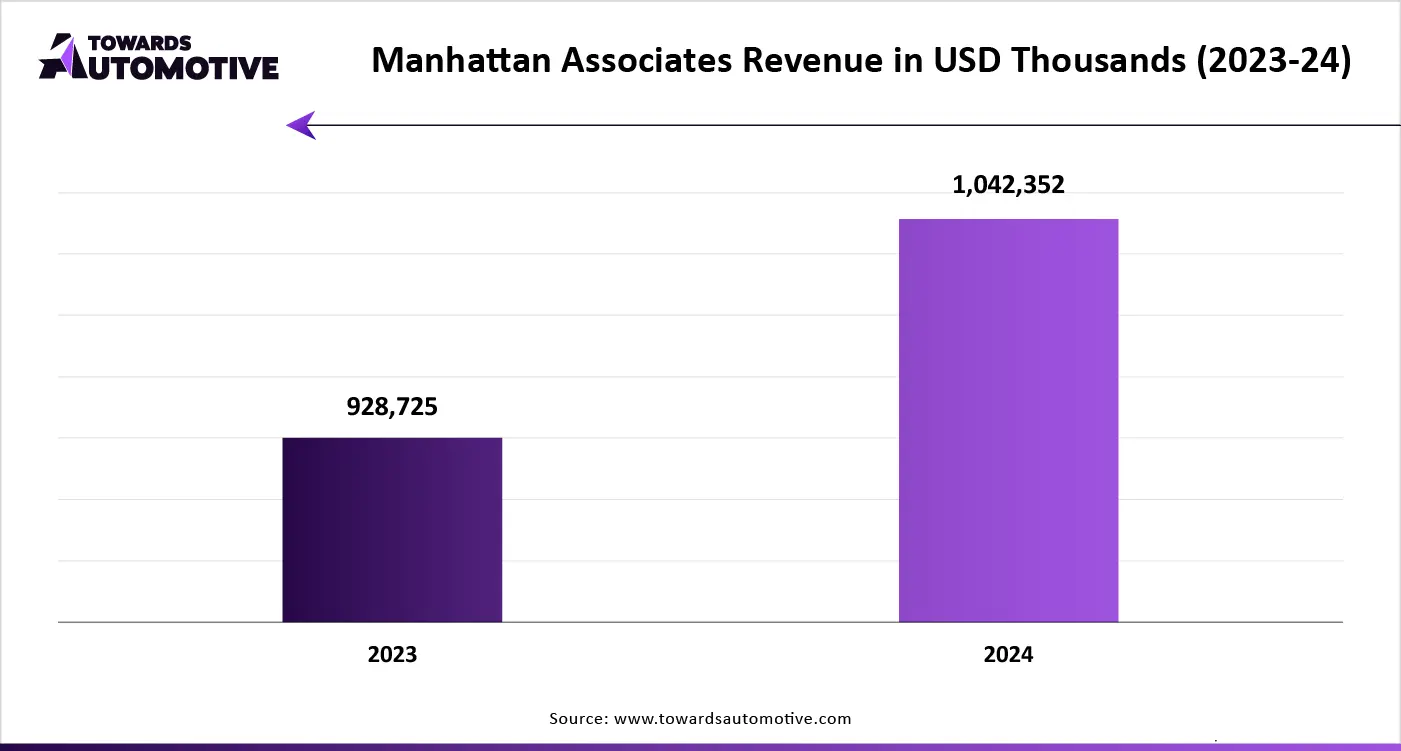
By Offering
By Deployment Model
By Application
By End-User
By Region
October 2025
September 2025
October 2025
October 2025
We offer automotive expertise for market projections and customizable research, adaptable to diverse strategic approaches.
Contact Us